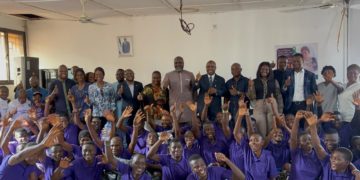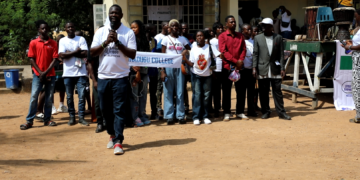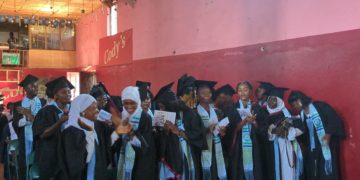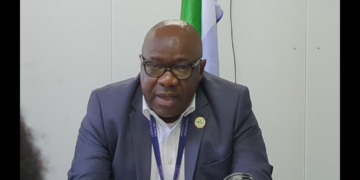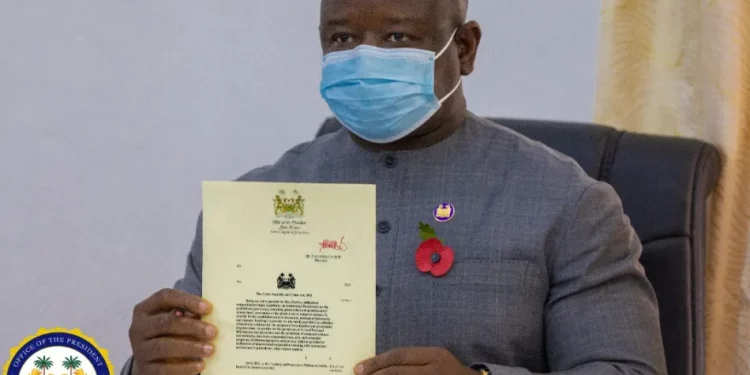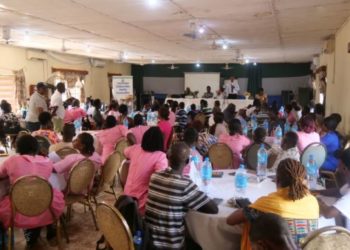The Sierra Leone Association of Journalists (SLAJ) is calling for a review of the country’s cybersecurity law, citing “worrying” signs of the repressive nature of the legislation enacted just 15 months ago.
SLAJ President Ahmed Sahid Nasrralla said several crackdowns on individuals in the last 10 months serve as warning shots about the threat the law poses to free speech online.
Nasralla raised the issue up with the government last week, through Minister of Information and Communication Mohamed Rahman Swaray.
“We are concerned about free speech online, the potential for violations in the future and about violations now, because we have already started seeing the signs,” he told ManoReporters.
A SLAJ delegation met with Minister Swaray and top officials of his ministry on September 12. A statement from the Association said the courtesy call was the first official meeting between the new executive of the umbrella journalist body and the Minister since their election. Nasralla, along with members of his executive, was re-elected president for his second and final three-year term at the SLAJ Triennial Conference in Makeni in June.
The discussions at the Information Ministry reportedly touched on a wide range of issues bordering on collaboration, media development and press freedom.
The Cyber Security and Crime Act 2021 is the government’s response to threats from criminals online. But from its onset, it attracted strong criticism, due to provisions with the potential to infringe on personal freedoms.
According to Nasralla, there are already evidence of this happening, including the August 10 internet interruption. In the middle of the violent anti-government protest on that day, internet was cut off for about two hours. Although the government blamed it on technical issues, the SLAJ president said they believe it was intentional. He pointed to the statement issued by the National Cybersecurity Coordinating Center on the day after the protest, which warned against publishing “incendiary” information.
But according to Nasralla, even before all these, two other incidents emphasized the threat posed by the law. In December 2021, Makeni based musician Tazmo Sliz became the first person to be arrested under the law on accusation of insulting an ethnic group. He was released after a few court appearances and a public apology.
In May, Journalist Sorie Saio Sesay in Karene District, was accused of sharing false information on social media, relating to a clash between security forces and bike riders in neighboring Makeni. Sorie was released on bail after six days in detention. But Nasralla said the police still have his phone, and the journalist confirmed this on Sunday.
Sorie, a senior reporter at the privately owned Okentu Radio Station in the district headquarters town of Kamakwe, lamented that the seizure of his phone has affected his work as he struggles to effectively communicate. The journalist told ManoReporters that the police said they were searching his phone in case it had any incriminating information.
Nasralla said this violates the cybersecurity Act, which requires a written permission from a judge or a competent court of law to seize a suspect’s devise.
“We don’t know whether that was followed,” he said.
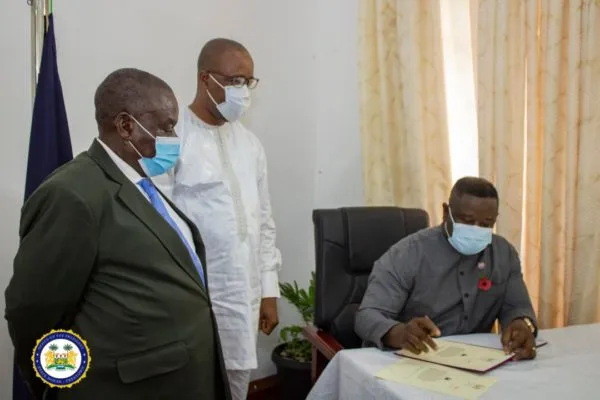
During development of the cybersecurity bill, SLAJ presented a set of recommendations in its position statement. It notably recommended the inclusion of representatives of the media and civil society in the Advisory Council, the oversight body for the implementation of the law.
But as per the final Act passed by parliament, the Council exclusively comprises of government officials, from the President as chairperson to ministers and politically appointed heads of security institutions.
Although SLAJ believes in the need for a law that guarantees a safe cyber space, Nasralla says any such law mustn’t pose a threat to free expression.
SLAJ is currently implementing an initiative – the ‘Cyber Safe Sierra Leone’ project – through which it engages journalists, civil society organizations, and bloggers with the goal of enhancing their understanding of the Act and to collectively build advocacy initiatives for the review of the Act.
At the meeting with the Information Minister, Nasralla emphasised the need for public education on the law, noting that understanding it is crucial to avoid conflict. He said this is especially important in light of the upcoming general elections. Concerns about instability and the role social media plays in it mounted with the announcement of the elections date.
While acknowledging the “critical role” the press plays in national development, Minister Swaray reiterated government’s commitment to promoting independence of the media. But he didn’t address the concerns over the cybersecurity law, only stressing that it provides for the protection of fundamental rights more than any other law in the country, according to the SLAJ press statement. The minister also reportedly offered his ministry’s support to SLAJ’s effort to simplify the legislation for easy understanding, noting that it is in line with the objectives of the National Cyber Security policy.
The Bio administration has been praised for its efforts in the last four years in promoting free speech, especially for the repeal of the decades old criminal libel law, as well as policies that promote independent media. The administration made history by introducing an annual subvention for SLAJ. It also co-hosted a conference with the objective of identifying potentials for investment in the media.


